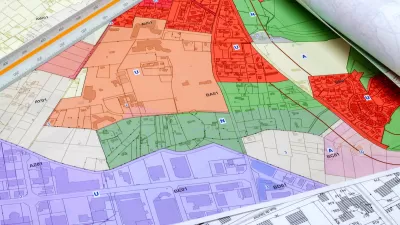A recent article from Richard Florida shows that the size and density of cities offers considerable advantages to the environment, beyond what is commonly understood.
While several studies have demonstrated that the "size and density of cities confers considerable economic advantages", Florida aims to show that size and density also benefit the environment, in less well understood ways.
"That larger and denser cities and metro areas might be energy efficient makes intuitive sense," Florida states, as is reflected in decreased encroachment on natural habitats and increased energy efficiencies. But, he continues, "the idea that their emissions might actually be lower than smaller cities' seems like a stretch."
However, by parsing CO2 emissions data with colleagues Kevin Stolarick and Jose Lobo of Arizona State University, Florida confirms that as such emissions rise alongside the economic output of metro areas, they do so at a declining rate. "In other words, increasing metropolitan output is associated with decreasing emissions."
"When it comes to being green, bigger really is better."
FULL STORY: Why Bigger Cities Are Greener

Maui's Vacation Rental Debate Turns Ugly
Verbal attacks, misinformation campaigns and fistfights plague a high-stakes debate to convert thousands of vacation rentals into long-term housing.

Planetizen Federal Action Tracker
A weekly monitor of how Trump’s orders and actions are impacting planners and planning in America.

In Urban Planning, AI Prompting Could be the New Design Thinking
Creativity has long been key to great urban design. What if we see AI as our new creative partner?

King County Supportive Housing Program Offers Hope for Unhoused Residents
The county is taking a ‘Housing First’ approach that prioritizes getting people into housing, then offering wraparound supportive services.

Researchers Use AI to Get Clearer Picture of US Housing
Analysts are using artificial intelligence to supercharge their research by allowing them to comb through data faster. Though these AI tools can be error prone, they save time and housing researchers are optimistic about the future.

Making Shared Micromobility More Inclusive
Cities and shared mobility system operators can do more to include people with disabilities in planning and operations, per a new report.
Urban Design for Planners 1: Software Tools
This six-course series explores essential urban design concepts using open source software and equips planners with the tools they need to participate fully in the urban design process.
Planning for Universal Design
Learn the tools for implementing Universal Design in planning regulations.
planning NEXT
Appalachian Highlands Housing Partners
Mpact (founded as Rail~Volution)
City of Camden Redevelopment Agency
City of Astoria
City of Portland
City of Laramie





























